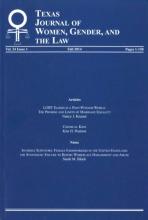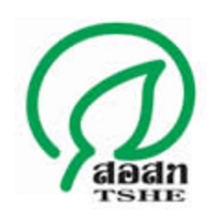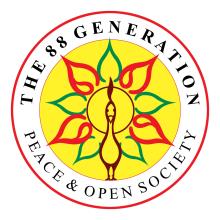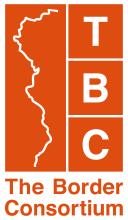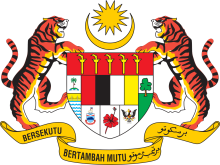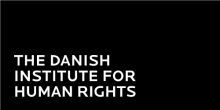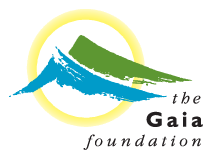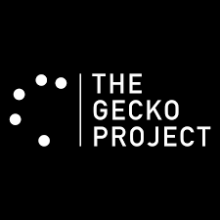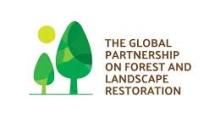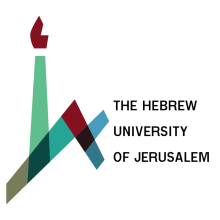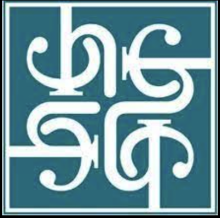The Land Library includes resources from more than 1,900 national and international information providers. Learn more about the organizations and institutions using the Land Portal to share their open-access research, data and stories.
Texas Journal of Women Gender and the Law
Since the release of Volume 1 in 1990, the Journal has secured its place at the forefront of contemporary legal issues through the publication of articles, essays, notes, and reviews that enhance and maintain discourse on gender concerns. To this end, the Journal aims to expand feminist legal thought and inspire dialogue about legal, social, and political issues affecting women, ultimately enhancing the relationship between theoretical and practical perspectives of gender and law.
Thai Society of Higher Education Institutes on Environment
The Thai Society of Higher Education Institutes on the Environment (TSHE) was founded in 2005, with aims to develop academic standards and environment personnel. To fulfill the objectives of the society, more than 15 Thai universities that offer courses on the environment have contributed to the activities of the TSHE. The activities include the following:
1. Developing the Thai Qualifications Framework for Higher Education, (TQF:HEd 1)
2. Publishing an environmental journal – EnvironmentAsia, a rapidly-growing academic journal, which is included in databases such as Scopus, DOAJ, EBSCO, TCI and Geobase.
3. Organizing international conferences on the environment – EnvironmentAsia, and
4. Leading activities on the environment and other relevant activities.
Hence, the TSHE showcases the academic outcomes and the unity of all the institutes offering courses on the environment.
The contribution of every institute has played a significant role in the progress of the society. The society is indebted to its two previous presidents, namely, Associate Professor Dr. Anuchart Puangsamlee and Assistant Professor Dr. Sitthipong Dilokwanich, who were key people, instrumental in the start-up of the society.
The TSHE has become a center symbolizing cooperation among Thai institutes which is expected to strengthen both teaching and learning about the environment in Thailand and also to become a key society on environmental issues in the ASEAN community.
The 88 Generation Peace and Open Society
THE 88 GENERATION (Peace & Open Society) is a Political Organization that is to build peace and promote the civil society in Myanmar.
The Age of Human Rights Journal
The Human Rights Age Journal is a scientific journal of international relevance, published in English, peer-reviewed and open-access, containing papers concerning Human Rights from different approaches. This Journal is edited in the framework of the Research Network “The Age of Rights” (HURI-AGE), composed by about one hundred researchers belonging to some of the most important human rights research groups in Spain (more information: http://redtiempodelosderechos.com/).
This network aims to analyze integrally the reality of human rights in contemporary societies by identifying the main challenges and problems they face today, or may face in the future, and to propose possible solutions leading to the establishment of an international rule of law. Our aim, in short, is to contribute, through the scientific reflection, to make the 21st century, eventually, the age of rights.
The Asia Foundation
The Asia Foundation improves lives, expands opportunities, and helps societies flourish across a dynamic and developing Asia. We work with innovative leaders and communities to build effective institutions and advance pathbreaking reforms. Together with our partners, we are committed to Asia’s continued development as a peaceful, just, and thriving region of the world.
The Australian Government's Overseas Aid Program
Australia's aid program
The Australian Government’s new development policy Australian aid: promoting prosperity, reducing poverty, enhancing stability and new performance framework Making Performance Count: enhancing the accountability and effectiveness of Australian aid introduce key shifts in our aid program.
Documents
Australia's new development policy and performance framework are available in PDF and Word formats.
- Australian aid: promoting prosperity, reducing poverty, enhancing stability
- Australia’s new development policy and performance framework: a summary
- Making performance count: enhancing the accountability and effectiveness of Australian Aid
The need for change
The world has changed—and our aid program must change too. Today, many developing countries are growing rapidly, with aid representing an increasingly small proportion of development finance. To be effective in this new context, our aid needs to be more innovative and catalytic, leveraging other drivers for development, such as private sector investment and domestic finance. We need to recast our aid program in light of this new development paradigm.
Changing where we work
The Australian aid program will focus on our Indo-Pacific region. We will have a sharper focus on our immediate neighbourhood—this is where we can make the most difference.
The Border Consortium
The Border Consortium (TBC), a non-profit, non-governmental organisation, is an alliance of partners working together with displaced and conflict-affected people of Burma/Myanmar to address humanitarian needs and to support community-driven solutions in pursuit of peace and development.
TBC is the main provider of food, shelter and other forms of support to approximately 92,000 refugees from Burma/Myanmar living in nine camps in western Thailand. It also supports recovery and community-driven development in conflict-affected areas in southeast Burma/Myanmar.
The Border Consortium is a Company Limited by Guarantee in England and Wales. Company number 05255598. Registered Office 35 Lower Marsh, London SE1 7RL. Charity Commission registered number 1109476.
Today (May 2018) the consortium’s members consist of nine international non-governmental organisations (INGOs) from ten countries. They are:
- Act for Peace, The National Council for Churches (NCCA), Australia
- Christian Aid, UK and Ireland
- Church World Service, USA
- DanChurchAid, Denmark
- Diakonia, Sweden
- Interchurch Organisation for Development Cooperation (ICCO), The Netherlands
- Inter Pares, Canada
- International Rescue Committee, USA
- Norwegian Church Aid, Norway
The Cambodia Daily
The Cambodia Daily is an independent newspaper published six days a week in Phnom Penh. It was established to provide a foundation for a free press in Cambodia and to train a new generation of journalists.
Its founder and publisher is a veteran American journalist who covered Cambodia in the 1960s for Newsweek and saw an opportunity to help the fledgling democracy by launching a newspaper here after the U.N.-supervised elections of 1993.
Cambodia, which suffered intolerable pain and misery through the genocide by the Pol Pot regime of 1975 to 1979 that cost the lives of more than 1 million of its people, remains one of the poorest nations in the region. It is afflicted by a multitude of problems including HIV/AIDS, millions of buried land mines, a high level of malaria infection in the rural areas, and general medical shortcomings. Crime, corruption and the illegal logging of Cambodia’s forests have further hampered its development.
On the brighter side, a new generation of dedicated young Cambodians is eager to leapfrog the “lost years” of neglect and strife. These ambitious Cambodians are flocking to learn medicine, law, business administration, along with English and computer skills. They are filling the classrooms at universities, technical and cram schools, seeking an education that will help them create a happier environment for themselves and their country.
In providing unbiased news of Cambodia and the rest of the world to readers in both English and Khmer, the newspaper hopes to contribute to the country’s reconstruction and rehabilitation. We aim to create an informed public that will be best able to select, through elections, the people most qualified to realize the goals of the Cambodian people.
The newspaper is available as a daily print edition in Cambodia (circ. 5,000).
Bernard Krisher, publisher
The Centre for Internet and Society
The Centre for Internet and Society (CIS) is a non-profit organisation that undertakes interdisciplinary research on internet and digital technologies from policy and academic perspectives. The areas of focus include digital accessibility for persons with disabilities, access to knowledge, intellectual property rights, openness (including open data, free and open source software, open standards, open access, open educational resources, and open video), internet governance, telecommunication reform, digital privacy, and cyber-security. The academic research at CIS seeks to understand the reconfiguration of social processes and structures through the internet and digital media technologies, and vice versa.
Through its diverse initiatives, CIS explores, intervenes in, and advances contemporary discourse and practices around internet, technology and society in India, and elsewhere.
The Danish Institute for Human Rights
The Danish Institute for Human Rights is an independent state-funded institution. Our mandate is to promote and protect human rights and equal treatment in Denmark and abroad.
We are Denmark’s national human rights institution. We are also a national equality body in relation to race and ethnicity and gender. Furthermore, we have a special role in the disability area where we promote and monitor the implementation of the UN Convention on the rights of persons with disabilities.
Our international work
Internationally, we work with National Human Rights institutions, state institutions with a cross-cutting human rights mandate and justice system actors, enabling them to strengthen human rights.
We assist in building well-functioning legal systems abroad and to ensure the influence of civil society.
We aid private companies in assessing the impact of their work on human rights.
We support authorities in enhancing their knowledge and implementation of human rights: e.g. police, judges and ombudsmen.
The Danish Institute for Human Rights works in two ways internationally.
We spur change on the ground through local implementation of best practice on human rights and we develop best practices and tools to be internationally agenda setting through our work within the international human rights systems.
The Department of Environmental Science, Rhodes University
We are a small department dedicated to advancing inter- and trans-disciplinary science and learning aimed at understanding and managing complex human-environmental/social-ecological systems, with a focus on Africa.
We are interested in human-environment interactions and in the governance and sustainable management of complex social-ecological systems. We recognise that we are living in a globalising and rapidly changing world characterised by numerous interconnected environmental and social challenges. We undertake research on the ecological and socio-economic dimensions of these challenges, with the goal of contributing towards more resilient, equitable and sustainable pathways into the future. The nexus between human well-being, livelihoods, vulnerability, ecosystem services and change is central in all our work. Key areas of research include:
- Livelihoods, vulnerability and biodiversity
- Ecosystem services and societal benefits
- Non-timber forest products use, trade and management
- Landscape change and land degradation
- Co-management and governance of protected areas
- Community based natural resource management
- Social learning for change
- Climate change adaptation
- Urbanisation, urban greening and forestry
- Ecosystem restoration and carbon sequestration
- Invasive plants – uses, impacts and management
- Food security, especially in relation to ecosystem services provision and wild food
The Diplomat
Since its launch in 2002, The Diplomat has been dedicated to quality analysis and commentary on events occurring in Asia and around the world. The Diplomat reaches an influential audience of commentators, policymakers and academics with its in-depth treatment of regional issues.
The Diplomat provides expert coverage on:
• Geo-political trends throughout the Asia-Pacific
• Defense and intelligence
• Environment, human security and development
• Arts, social trends and popular culture
The Energy and Resources Institute
WHO WE ARE
A dynamic and flexible organization with a global vision and a local focus, TERI was established in 1974, with the initial focus on documentation and information dissemination. Research activities, initiated towards the end of 1982, were rooted in TERI’s firm conviction that efficient utilization of energy and sustainable use of natural resources would propel the process of development.
All activities in TERI, the largest developing-country institution working towards sustainability, move from formulating local- and national-level strategies to shaping global solutions to critical issues. Towards this end, we have established regional centres in Bengaluru, Goa, Guwahati, Mumbai and the Himalayas. We have also set up affiliate institutes – TERI-NA, Washington, DC, USA, and TERI Europe, London, UK – and also have a presence in Japan, Malaysia, and the UAE. We have also established a research base in Africa with an aim to both provide technical assistance as well as facilitate exchange of knowledge amongst the communities in various African states.
Buoyed by more than 40 years of excellence in research and innovation, TERI is now poised for future growth, driven by a global vision and outreach, with a philosophy that assigns primacy to enterprise in government, industry, and individual actions.
VISION
Creating Innovative Solutions for a Sustainable Future
MISSION
Tackle issues of concern to Indian society, and the world at large, and develop innovative and cost effective solutions.
Enhance networking for sustainable interventions
Realize potential for national and international leadership as a knowledge based agent of change in the fields of energy, environment, other natural resources and sustain able development.
Inspire and reach out to diverse stakeholders for realising a shared vision of global sustainable development could be translated into action.
The Ethiopia Sheep and Goat Productivity Improvement Program
The Ethiopia Sheep and Goat Productivity Improvement Program (ESGPIP) is a USAID- funded five-year project designed to reduce constraints to increased productivity of small ruminants in Ethiopia through appropriate interventions. The ESGPIP supports USAID’s long-term strategic goal of realizing a more peaceful, secure, prosperous, and healthy Ethiopia, as well as strategic objectives of increasing human capacity and social resiliency and private sector-led economic growth. The Prairie View A&M University (PVAMU) of Texas and Langston University (LU) of Oklahoma work with the Ethiopian Government’s Ministry of Agriculture and Rural Development (MoARD) to implement the ESGPIP under a Cooperative agreement signed between the USAID and the PVAMU on 22 September 2005.
The Forest Trust
Earthworm Foundation is a non-profit organisation built on values and driven by the desire to positively impact the relationship between people and nature.
With most of our staff operating directly on the ground where the issues are, we work with our members and partners to make value chains an engine of prosperity for communities and ecosystems.
In fact, we see a world where forests are a boundless source of materials and a home for biodiversity; communities see their rights respected and have opportunities to develop; workers are seen as productive partners; and agriculture becomes the instrument to feed a hungry planet and keep our climate stable.
The Gaia Foundation
The Gaia Foundation is passionate about regenerating cultural and biological diversity, and restoring a respectful relationship with the Earth. Together with long-term partners in Africa, South America, Asia and Europe, we work with local communities to secure land, seed, food and water sovereignty. By reviving indigenous knowledge and protecting sacred natural sites, local self-governance is strengthened. This enables communities to become more resilient to climate change and the industrial processes which have caused the many crises we now face.
Gaia makes a long-term commitment with our partners to address the root causes of today's most pressing ecological, social and economic injustices. We are a small, flexible team, which enables us to read and respond quickly to emerging issues and opportunities for change.
The Gambia Bureau of Statistics
The Gambia Bureau of Statistics (GBOS) is a government department under the Ministry of Finance and Economic Affairs responsible for the collection, analysis and dissemination of statistical data. A recent review of our activities has confirmed the need to create appropriate strategies, tools and channels in order to disseminate our results to our stakeholders – from staff, directors and policy makers, to the general public. This portal/application provides a variety of levels of detail that will allow our diverse set of users of varying statistical capacity, to better access and understand. This portal/application will also contribute towards the creation of evidence-based policies and strategies within relevant ministries and government departments.
The Gambia Competition and Consumer Protection Commission
The Gambia Competition and Consumer Protection Commission (GCCPC) is a statutory authority under the purview of the Ministry of Trade and Industry composed of five Commissioners appointed by the President, and headed by a Chairperson.
GCCPC is the body primarily responsible for the promotion of competition and the protection of consumers mandated by three acts, namely: The Competition Act 2007, The Consumer Protection Act 2014, and The Essential Commodities Act 2015.
The Gecko Project
The Gecko Project is an investigative journalism initiative established to shine a light on the corruption driving land grabs and the destruction of tropical rainforests. It seeks to create and maintain a sense of urgency over the role of large land deals, predominantly for food production, in some of the most pressing global challenges: climate change, the collapse of biodiversity, food security, and the rights of indigenous peoples and other rural communities. We aim to achieve this through the production and promotion of in-depth, high-quality and accessible journalism. To contact us email tomj[at]thegeckoproject.org. The Gecko Project was established at Earthsight in 2017 and became an independent organisation in 2019.
The Global Partnership on Forest and Landscape Restoration
The Global Partnership on Forest and Landscape Restoration (GPFLR) is a proactive global network that unites governments, organizations, academic/research institutes, communities and individuals under a common goal: to restore the world’s lost and degraded forests and their surrounding landscapes.
Specifically, the GPFLR responds directly to the Bonn Challenge to restore 150 million hectares of deforested and degraded land by 2020 and 350 million hectares by 2030.
The GPFLR was initiated in 2003 by a small consortium of like-minded organizations and spearheaded by IUCN. Its purpose is to catalyze dynamic, voluntary action through sharing diverse experiences on restoration efforts which deliver tangible benefits to both local communities and nature through a landscape approach, while also fulfilling international commitments on forests.
The GPFLR does this by:
Catalyzing support
Members of the partnership work together to build support for forest and landscape restoration (FLR) at all levels. This includes building awareness and securing the interest of decision-makers and opinion-shapers from government, the private sector, civil society, the media and others. It also involves promoting increased support for FLR in international, regional and national policy frameworks.
Creating knowledge networks to accelerate restoration effort
As practitioners of FLR, we are learning all the time, through experience and from each other. The GPFLR Learning Network provides an important vehicle for that process. Our aim is to raise awareness of real world FLR experiences and make available the tools and knowledge to support practitioners in the field. By connecting our partners and collaborators around the world in an FLR community of practice we are able to spread best practices, build cooperation and exchange new ideas and solutions, saving both time and resources.
Capacity development
Courses and workshops are essential to developing individual and collective capacity with respect to the conservation and restoration of forest landscapes. Our partners organize multiple and varied courses and learning opportunities related to FLR all over the world and online.
We believe that ideas transform landscapes
Through active engagement, collaboration and the sharing of ideas and information, GPFLR promotes an integrated, cross-sectoral approach to restoration that seeks to ensure that forests and the functions and values they represent are effectively re-established, conserved and used to enable sustainable livelihoods and ecological integrity for the future.
The GPFLR does not seek to establish a parallel policy process or duplicate the efforts of others, but rather pursues and creates positive synergies between existing activities, projects, processes and institutions to encourage and reinforce the contribution of each.
The Gordon Foundation
The Gordon Foundation is a charitable organization dedicated to protecting Canada's water and empowering Canada's North. We seek opportunities to amplify underrepresented voices, elevate emerging issues, and collaborate with like-minded organizations to drive powerful, sustainable outcomes.
The Guardian
The Guardian is a British national daily newspaper. The Guardian is a part of the Guardian Media Group, owned by The Scott Trust Limited. The Trust was created in 1936 "to secure the financial and editorial independence of the Guardian in perpetuity and to safeguard the journalistic freedom and liberal values of the Guardian free from commercial or political interference." The Scott Trust became a limited company in 2008, with a constitution containing the same protections for the Guardian. Profits are reinvested in journalism rather than to the benefit an owner or shareholders.
The Hebrew University of Jerusalem
The Hebrew University of Jerusalem, founded in 1918 and opened officially in 1925, is Israel’s premier university as well as its leading research institution. The Hebrew University is ranked internationally among the 100 leading universities in the world and first among Israeli universities.
The recognition the Hebrew University has attained confirms its reputation for excellence and its leading role in the scientific community. It stresses excellence and offers a wide array of study opportunities in the humanities, social sciences, exact sciences and medicine. The university encourages multi-disciplinary activities in Israel and overseas and serves as a bridge between academic research and its social and industrial applications.
The Hebrew University has set as its goals the training of public, scientific, educational and professional leadership; the preservation of and research into Jewish, cultural, spiritual and intellectual traditions; and the expansion of the boundaries of knowledge for the benefit of all humanity.
The Hollings Center
The Hollings Center for International Dialogue is a non-profit, non-governmental organization dedicated to fostering dialogue between the United States and countries with predominantly Muslim populations in the Middle East, North Africa, South Asia, Eurasia and Europe. In pursuit of this mission, the Hollings Center convenes dialogue conferences that generate new thinking on important international issues and deepen channels of communication across opinion leaders and experts.
The International Growth Centre (IGC)
The International Growth Centre (IGC) aims to promote sustainable growth in developing countries by providing demand-led policy advice based on frontier research.
The IGC directs a global network of world-leading researchers and in-country teams in Africa and South Asia and works closely with partner governments to generate high quality research and policy advice on key growth challenges. Based at LSE and in partnership with the University of Oxford, the IGC is funded by the UK Department for International Development (DFID).
The Irrawaddy
The Irrawaddy (Burmese: ဧရာဝတီ; MLCTS: ei: ra wa. ti) is a website by the Irrawaddy Publishing Group (IPG), founded in 1990 by Burmese exiles living in Thailand. From its inception, The Irrawaddy has taken an independent stance on Burmese politics. As a publication produced by former Burmese activists who fled violent crackdowns on anti-military protests in 1988, it has always been closely associated with the pro-democracy movement, although it remains unaffiliated with any of the political groups that have emerged since the 8888 Uprising.
The Irrawaddy is published in both English and Burmese, with a primary focus on Burma and Southeast Asia. It is regarded as one of the foremost journalistic publications dealing with political, social, economic and cultural developments in Burma. In addition to news, it features in-depth political analysis and interviews with a wide range of Burma experts, business leaders, democracy activists and other influential figures.
The Journal of Modern African Studies
The Journal of Modern African Studies offers a quarterly survey of developments in modern African politics and society. Its main emphasis is on current issues in African politics, economies, societies and international relations. It is intended not only for students and academic specialists, but also for general readers and practitioners with a concern for modern Africa, living and working both inside and outside the continent. Editorial policy avoids commitment to any political viewpoint or ideology, but aims at a fair examination of controversial issues in order to promote a deeper understanding of what is happening in Africa today. The journal also includes an invaluable book review section.
The Journal of Peasant Studies
A leading journal in the field of rural politics and development, The Journal of Peasant Studies ( JPS) provokes and promotes critical thinking about social structures, institutions, actors and processes of change in and in relation to the rural world. It fosters inquiry into how agrarian power relations between classes and other social groups are created, understood, contested and transformed. JPS pays special attention to questions of ‘agency’ of marginalized groups in agrarian societies, particularly their autonomy and capacity to interpret – and change – their conditions.
The Journal encourages contributions from across the social sciences which:
-
question mainstream prescriptions;
-
interrogate orthodoxies in radical thinking;
-
explore theoretical, policy and political alternatives.
The Journal welcomes contributions on a wide range of contemporary and historical questions and perspectives related to rural politics and development; on issues that confront peasants, farmers, rural labourers, migrant workers, indigenous peoples, forest dwellers, pastoralists, fisherfolk and rural youth – both female and male – in different parts of the world.
In addition to articles and special issues, the Journal publishes Grassroots Voices – views that are written and presented in a non-academic style but provide important insights and information relevant to critical rural development studies; and Reviews of important theoretical or policy-oriented books or films written for diverse audiences. For more information about Grassroots Voices and Reviews, see here.
JPS was founded in 1973 on the initiative of Terence J. Byres and its first editors were Byres, Charles Curwen and Teodor Shanin who are among the most important agrarian political economists.
The Land Claims Court of South Africa
The Land Claims Court was established in 1996.The Land Claims Court specialises in dealing with disputes that arise out of laws that underpin South Africa's land reform initiative. These include the Restitution of Land Rights Act, 1994, the Land Reform (Labour Tenants) Act, 1996 and the Extension of Security of Tenure Act, 1997. The Land Claims Court has the same status as any High Court. Any appeal against a decision of the Land Claims Court lies with the Supreme Court of Appeal, and if appropriate, to the Constitutional Court. The Land Claims Court can hold hearings in any part of the country if it thinks this will make it more accessible and it can conduct its proceedings in an informal way if this is appropriate, although its main seat is in Randburg, Johannesburg, South Africa.

